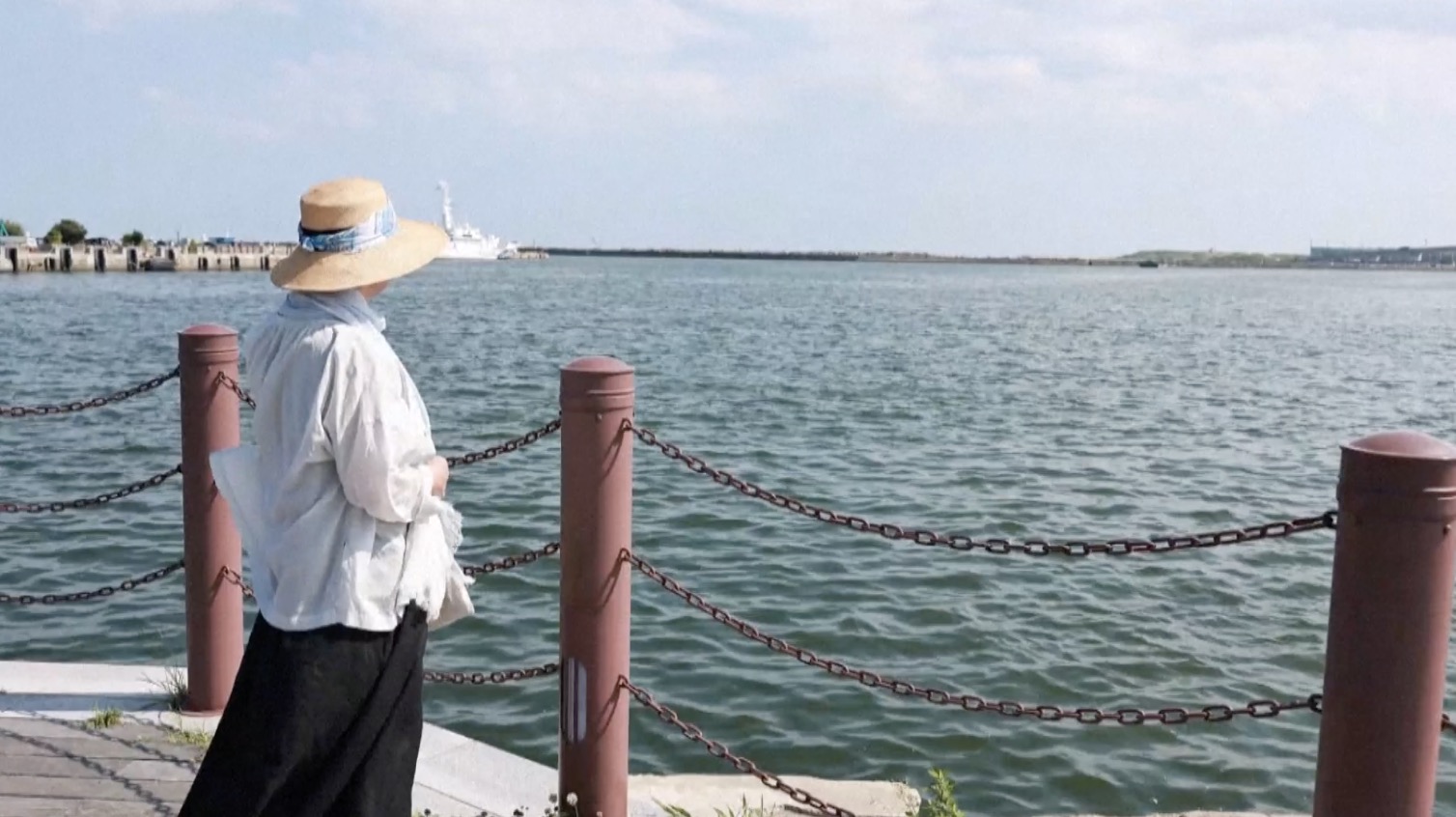
Environmentalists in Fukushima have once again voiced their strong opposition against the Japanese government's plan to discharge nuclear-contaminated water into the sea, saying it is "no different from crime."
Chio Oda is an environmentalist born and raised in Fukushima. She experienced the catastrophic earthquake in 2011 and has been promoting knowledge about nuclear accidents and protection against radiation in the local area.
Oda said the Japanese government's decision to discharge the contaminated water into the sea is irresponsible, for there are better options. However, the government chose the most cost-saving and also the most dangerous plan.
"Why did the Japanese government adopt such a plan to discharge nuclear-contaminated water into the sea? I am strongly opposed to this decision. I believe it is a wrong decision," said Oda. "The Fukushima nuclear accident has already caused the leakage of radioactive substances. Now, by discharging water into the sea, the contamination of radioactive substances is being artificially expanded. I think this is unacceptable."
The discharge plan has caused grave concern among Fukushima residents, especially local fishermen.
"About 70 percent of grassroots organizations in Fukushima oppose the discharge of nuclear-contaminated water into the sea," said Oda. "Although not all residents were surveyed, I think more than half will oppose. For example, fishermen are working hard to provide safe food for everyone. When people oppose the discharge of nuclear-contaminated water into the sea, fishermen are also concerned whether the seafood they provide is safe. As long as people realize it is wrong to discharge nuclear-contaminated water into the sea, everyone will oppose it."
The Japanese government and the Tokyo Electric Power Company (TEPCO), which operates the stricken plant, had committed that they would not discharge the contaminated water without the permission from relevant parties. But now they are pushing forward the discharge plan despite public concern.
"We believe the radioactive elements in the nuclear-contaminated water cannot be completely cleaned up, so it cannot be called treated water. We all call it contaminated water," said Oda. "Although the Japanese government calls it tritiated water or treated water in order to reduce people's concerns about its safety, we believe it cannot be called that way.
"The Japanese government and TEPCO once promised in writing not to discharge the water into the sea without the consent of relevant parties such as fishermen. They also said that they would always abide by this promise. However, while saying this, they are still pushing forward the plan of discharging the contaminated water into the sea. I think this is no different from crime," she added.
(If you have specific expertise and want to contribute, or if you have a topic of interest that you'd like to share with us, please email us at nature@cgtn.com.)